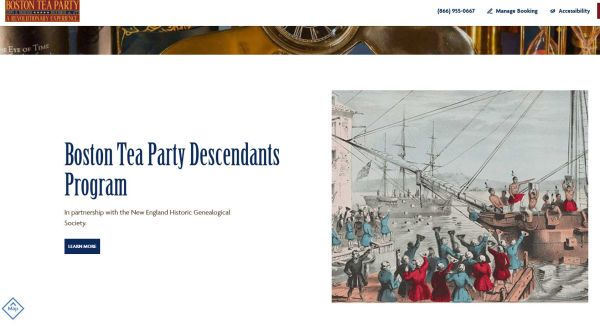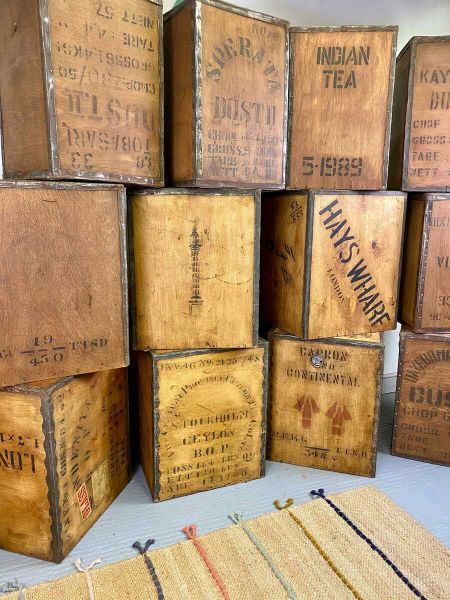The Tea Party Revisited
The Tea Party Revisited
Years ago, longer than I care to remember, I wanted to skip a semester at college and remain in the Boston area. I applied for different jobs, pestering old friends to put me up for extra nights, while I continued to search for a job. I applied at the Boston Tea Party Museum and must have made an indifferent job-candidate, since the object of my remaining in Boston was a girl, not history, at all! The person interviewing me picked up on my indifference quickly and sent me away without a job. As I stood at the pier, I watched the Museum employees in period costumes show their guests how to throw a tea-chest into Boston Bay. It had a rope attached to it that the employees used to haul the chest from the Bay, for the next guest to throw.
As a tea-drinker myself, I know a little about the history of the trade, how the British discovered that the Chinese drank tea. They knew they could make a pile of money if they could produce tea in India and export it back to the home-country, so they planted tea in "Greater India", as it was known at that time, The British East India Company handled the logistics of shipping tea to England in chests, like those discarded in Boston Bay. The tea in those chests must have come from Greater India, or from China.
The perpetrators of the Boston Tea Party, the so-called "Sons of Liberty", targeted the British tea because of a tax that the British royal administration had imposed on the American colony, in order to recoup the costs of carrying on the "French and Indian War", as Americans have learned to call it. The British themselves call it the "Seven Years War". The higher-ups who organized the Sons of Liberty and other groups to oppose the British had in mind a more far-reaching goal than simply protesting new taxes, namely independence from Britain and the creation of a new nation that would "assume among the powers of the Earth, the separate and equal station to which the Laws of Nature . . . entitle it."
Move forward to 2010. The Tea Party Movement formed among Conservatives in the Republican Party to oppose what Senator Bob Dole called the Democrat "Taxesaurus". The Tea Party members wanted to implement curbs on government spending, lower taxes, and a return to more prudent fiscal policy-making. Like many such populist movements, it started out with grand-standing and great expectation, but fizzled out, so that by the end of the Obama Administration tenure, most of the Tea Party candidates lost to mainstream candidates in the Republican party in the ensuing primaries.
Mainstream Republican Party leaders probably felt embarrassed by the Tea Party people. They would have insisted they already held conservative views and pursued fiscally responsible policy-making as a matter of course. The Tea Party leaders did not have the seniority of the mainstream leaders, nor their level of experience. The mainstream Republicans hardly saw the need for the Tea Party to do what they were already doing.
But may I suggest that the Tea Party Movement failed because it did not aim high enough. The Conservative movement and fiscally responsible policy-making will never catch on in the wider public because it does not understand the terms of political movements. The public has simple wants: a full refrigerator, a car full of gas, money in their bank accounts, and a job to go to everyday. They don't care a lot how the government enables all that to happen, just make it happen. Average Republican voters understand that the Democrats support greater government involvement in their lives and larger government budgets.
But the idea that these two movements don't simply oppose each other, but actually cause administrative dysfunction does not occur to them. Democrats and Republicans just think of themselves as housemates who don't agree on anything, not as enemies living under the same roof, causing the collapse of the entire house. The idea that Republicans could live with more integrity and unity in a nation of their own, like the Founding Fathers imagined, doesn't occur to them. I don't know what will have to happen in our divided nation for them to get their brains around the reality of an independent nation, which was the original intention of the Boston Tea Party.


